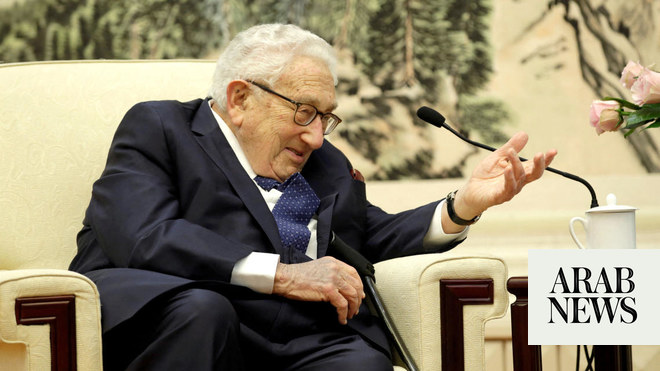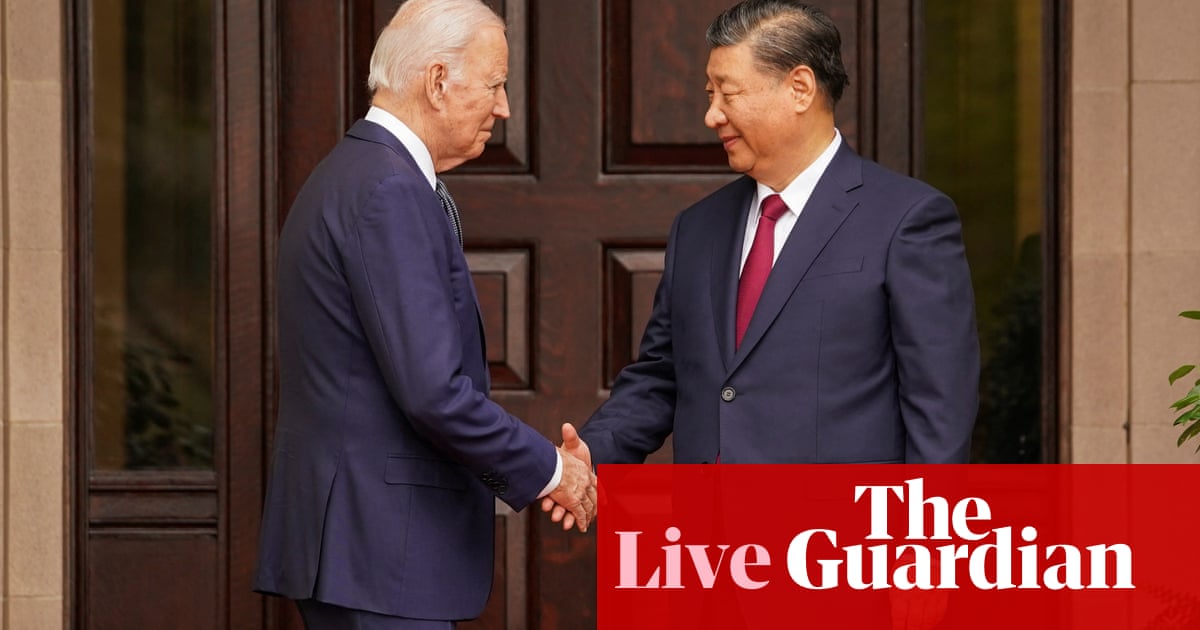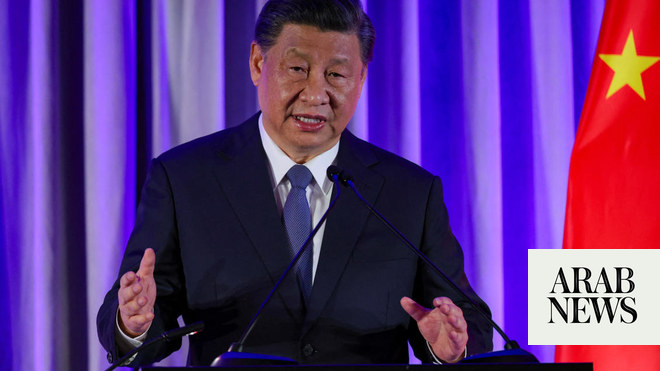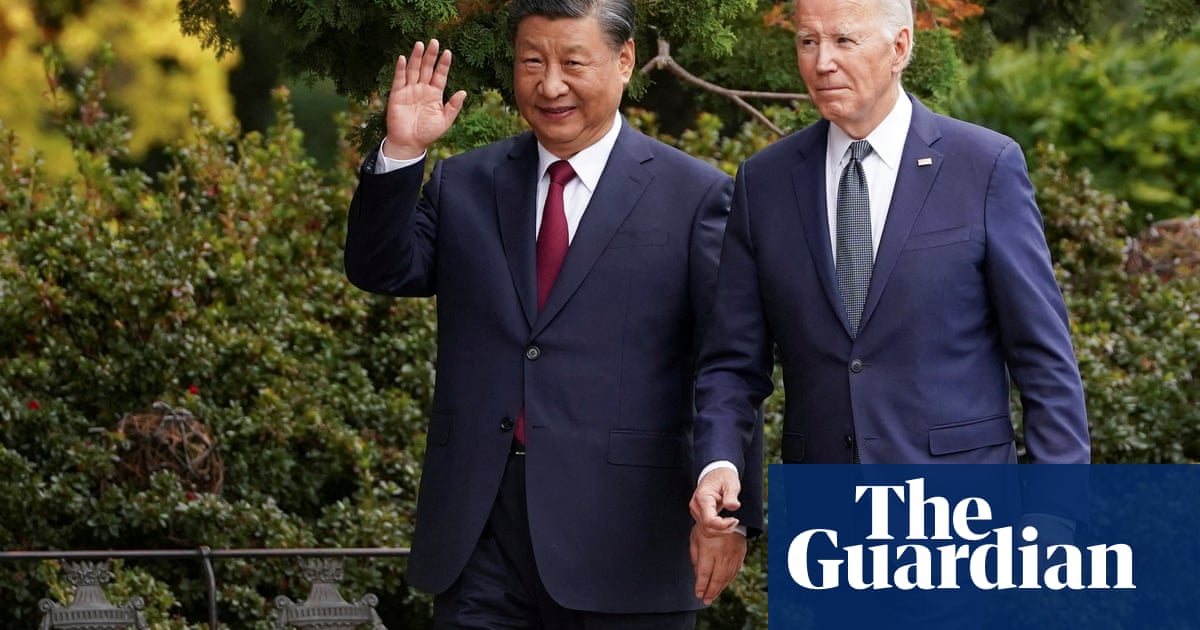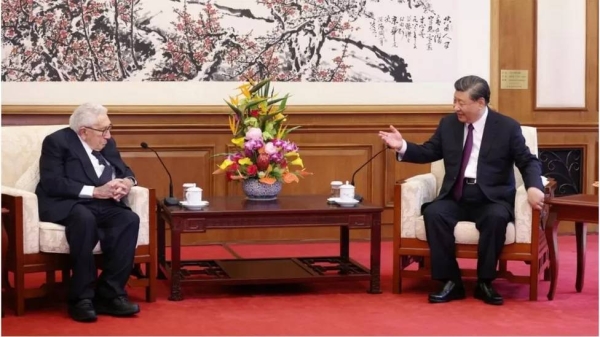
Chinese President Xi Jinping has given a warm welcome to former top diplomat Henry Kissinger, as the US pursues closer ties with China.
Kissinger"s surprise trip to the Chinese capital comes amid a flurry of visits by top US officials.
The former secretary of state, who is 100 years old, played a crucial role in helping China emerge from diplomatic isolation in the 1970s.
The US has stressed he is visiting in his capacity as a private citizen.
But given his outsized stature in China, he could act as a backchannel for US-China negotiations.
State television showed Xi smiling as he told Kissinger: "I"m very glad to see you, sir."
They met at the Diaoyutai State Guesthouse, a more intimate space than the sprawling Great Hall of the People where official meetings with foreign diplomats are usually hosted.
Diaoyutai was also the place where, half a century ago, Kissinger met Chinese officials in a secret visit that helped to kick-start the normalisation of US-China ties, noted Xi.
"We will never forget our old friends, and will not forget your historical contributions to develop US-China relations and friendship between the two peoples," he added.
Xi"s affectionate tone mirrored the conciliatory messaging from other top officials who met Kissinger after he touched down on Monday.
Chinese statements on his meetings with top diplomat Wang Yi and defence minister Li Shangfu emphasised the need for respect, co-operation and "peaceful co-existence" between the two superpowers.
The read-outs also quoted Kissinger as saying he was a "friend of China", that "neither the United States nor China can afford to treat the other as an adversary", and that their relations would be "central to the peace in the world and to the progress of our society".
Chinese state media have cast Kissinger"s visit in a positive light, while on social media many marvelled at Kissinger"s stamina, discussing his trip with the Weibo hashtag "Kissinger can still fly to Beijing for a business trip despite being 100 years old".
But some online also lamented that the US was sending centenarians to promote ties. "Politicians with great wisdom are getting fewer," said one user.
A State Department spokesman earlier this week said that they were aware of Kissinger"s trip and "would not be surprised" if he decided to brief them upon his return.
But they also stressed he was there "under his own volition" and not acting on behalf of the US government.
As a private citizen, Kissinger can be more frank in his discussions with Xi and other officials, affording him more leeway in presenting US concerns and demands.
It is also less controversial for him to meet figures such as Li, who has been under US sanctions since 2018 for purchasing arms from Russia. Last month Beijing refused to let Li meet his US counterpart Lloyd Austin at a forum in Singapore, citing the sanctions.
It may be of little surprise that Kissinger decided to take matters into his own hands with his visit.
In an interview in December, Kissinger had criticised the Trump and Biden administrations" approaches to China. He said the current US government was attempting a dialogue that "usually begins with a statement of Chinese iniquities" and that discussions were "stymied".
While Kissinger is no stranger to China - he has visited it more than 100 times and last met Mr Xi in 2019 - this trip comes at a turning point in the US-China relationship.
After months of hostility exacerbated by this year"s spy balloon incident, diplomatic negotiations appear to be back on track with China welcoming a series of top US officials in the space of a few weeks.
Apart from Secretary of State Antony Blinken who visited last month, Kissinger is the only US figure Xi has met in recent weeks - a measure of the respect the veteran diplomat still commands in China.
Treasury Secretary Janet Yellen and US special envoy for climate John Kerry have also paid visits to Beijing, but did not get face time with China"s president.
With its overtly warm reception of Kissinger, Beijing has clearly signaled it wants more engagement from the US, with Wang saying "the US" China policy needs Kissinger"s diplomatic wisdom and Nixon"s political courage".
But this will not change the fact that China will, in the end, stick to its priorities, said Wen-ti Sung, a political scientist with the Australian National University.
"Beijing may potentially consider making token gestures of goodwill after Kissinger"s trip both as a thankyou to its friend and boost Kissinger"s standing," he told the BBC.
"But do not expect it to meaningfully shift the fundamentals driving US-China relations, which will be governed not by individual considerations, but by what Beijing sees as its own national interests."
Though Kissinger has a controversial reputation in other parts of Asia for his role in the Vietnam War, in China he remains highly regarded for aiding the country"s re-engagement with the world.
In 1971, while the US and China officially had no ties, Kissinger had paid clandestine visits to Beijing to arrange a trip by then-US President Richard Nixon.
The following year Nixon landed on Chinese soil and met top leaders including Mao Zedong. It paved the way for the normalisation of US-China diplomatic relations and the opening-up of China"s economy. — BBC




